Iran Anticipates Less Oil Income In 2023, As Global Demand Cools
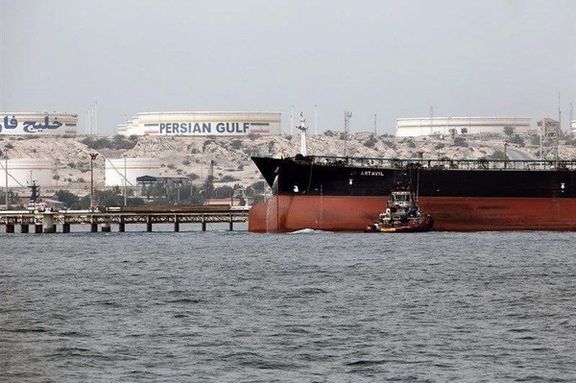
Iran’s income from crude oil exports will substantially decline in 2023, according to a report in the official government news website, IRNA.

Iran’s income from crude oil exports will substantially decline in 2023, according to a report in the official government news website, IRNA.
The Islamic Republic says that its oil export revenues were around $37 billion in 2022, higher than in 2021 and substantially more than in 2020, when it sold much less oil to China.
IRNA says that because of weaker global demand in 2023, Iran’s exports are estimated to reach $27.3 billion, around $10 billion less than in 2022.
Russia hit by sanctions has significantly increased cheap oil exports to China, becoming a competitor to Iran, although they are military and political allies.
Iran plans its budget according to expected oil revenue since it covers around half of all government financial needs. This year, the government has not published its budget outline yet for the next Iranian year that starts on March 21, 2023.
Already, Iran’s currency has experienced a shocking decline since September, falling from around 310,000 rials to the US dollar to more than 400,000, because of a huge rise in the money supply as the government prints more banknotes to pay its expenses.
Tehran keeps oil export and income figures a state secret and estimates are often offered by OPEC or other international organizations. It is believed that Iran offers hefty discounts to its main customer China, which allows its small refineries to import Iranian crude despite United States sanctions.
A drop in oil in 2023 will have a significant negative impact on the economy, leading to more money being printed by the government and higher inflation.
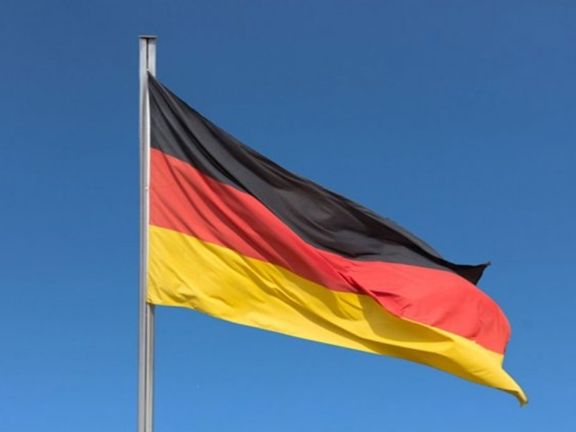
German media say investigations are underway about the role of nearly a dozen Iran IRGC-linked people who are accused of launching attacks on Jewish centers.
Die Welt daily wrote Thursday that Iran’s Revolutionary Gurad manages such operations outside of Iran by hiring criminals.
Police has now launched an investigation to find out more about a terrorist cell in North Rhine-Westphalia, said Welt, adding that one of the suspects had been in radical circles for some time.
Germany and the European Union are discussing the listing of the IRGC as a terrorist organization for its role in violence on protesters in Iran.
In November, an unknown person fired several times at the door of a synagogue in downtown Essen west of Germany.
Nobody got hurt, but the investigators assume the act was part of a series of anti-Semitic attacks probably launched by a cell of terrorists managed by the IRGC, the report said.
Last month, a German TV channel reported the country's security institutions believe the Revolutionary Guard is behind the attacks on Jewish centers in the country.
On November 18, a German-Iranian was detained on suspicion of committing arson at a synagogue in the city of Bochum in Germany.
Local police suspected that the man is connected to Ramin Yektaparast, the founder of the Hell’s Angels group in the city of Mönchengladbach.
German Media reported Yektaparast fled to Iran last year to escape trial for the brutal murder of another member of the gang in 2014.
The suspect might also have been responsible for the attack on the old synagogue in the city of Essen, said German officials.
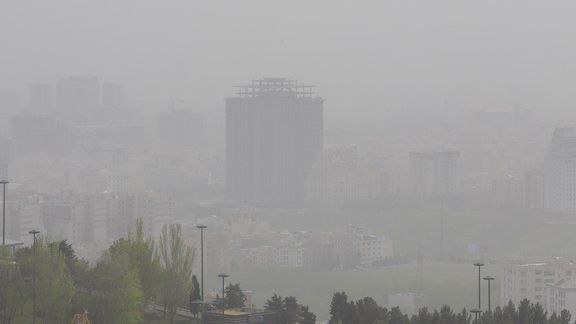
Air pollution in Iran’s capital Tehran and several other cities has reached alarming levels, prompting the government to issue warnings a close some schools.
Iran Meteorological Organization (IMO) on Friday ranked many urban areas as orange or red from Friday December 30 to January 1, specially in Tehran and nearby cities.
According to local media, the government continues to burn mazut at power stations, a dirty oil product banned in most countries. The country usually faces natural gas shortages in winter months, because of higher home consumption. As a result, the decaying energy sector resorts to using mazut with an immediate impact on air pollution.
IMO warned citizens that air quality in many cities is deemed to be harmful or dangerous. These include Tehran, Karaj, Esfahan, Arak and Tabriz. Local officials have demanded that the government stops using mazut, but that could lead to blackouts.
Iran has the world’s second largest natural gas deposits but is unable to boost production because of lack of capital and Western technology. Government officials have said that the country needs to invest $40 billion in modernizing and expanding its gas extraction facilities, but most are in the Persian Gulf and need Western technology.
Due to its anti-West foreign policy and an expanding nuclear program, Iran is under US sanctions and cannot borrow money or technology from most of the world.
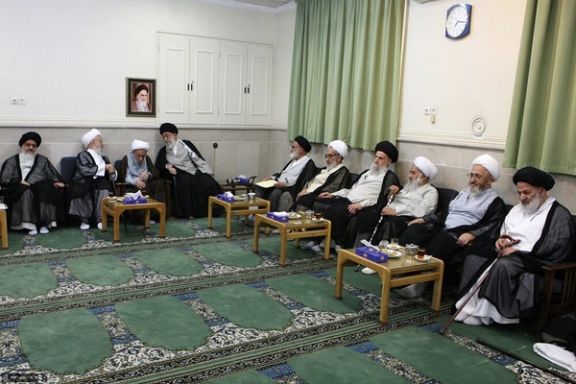
Some of the highest-ranking Iranian clerics have protested to high inflation, sharply rising prices and the inept management of the markets by the government.
The high-ranking clerics have spoken against President Ebrahim Raisi's ultraconservative government, only after the Speaker of the Iranian Parliament Mohammad Bagher Ghalibaf (Qalibaf) who calls himself a neo-conservative went to see them in Qom.
This might be the starting point of a shift from policies based on conspiracy theories inspired by presidential adviser Saeed Jalili to more pragmatic ideas Ghalibaf has been offering as a prelude to what he called a move toward "a new governance" in Iran. Some social media users have called the move "a soft coup by pragmatists against the ultraconservatives," who try to blame most problems on machinations by “enemies”, meaning the United States and its allies.
The move comes while the Iranian government is at its lowest point of popularity after three months of street protests and another sharp devaluation of the Iranian currency in a matter of a week which brought the rate of exchange for the US dollar to 440,000 rials.
The clerics, the "sources of emulation" as they are known in Qom, hold the highest ranks in Iran's brand of Shi'ism and they are supposed to lead the nation by example in all matters of everyday life. Nonetheless, it is not clear how many people follow them and their advice.
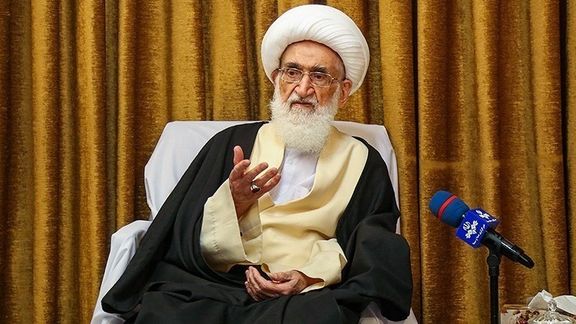
Following meetings with Ghalibaf, Ayatollah Nouri Hamadani, a clerics who has been always silent in the face of whatever that the government has done to the economy, criticized Raisi for bragging about the country's progress and the state of the economy: "No prices have fallen and none of the people's problems have been solved. The only thing that has certainly happened is the devaluation of the Iranian currency."
Ayatollah Nasser Makarem Shirazi who has usually supported the Raisi administration and all the government's hard-line policies, said, "Not only the economic situation is not improving, but the inflation rate has been rising. People ask us why we do not warn the government about the situation. In factو we do warn, but the state television never broadcast our warnings."
Despite his criticism of the government's economic policies, Makarem Shirazi strongly supported the crackdown on protesters.
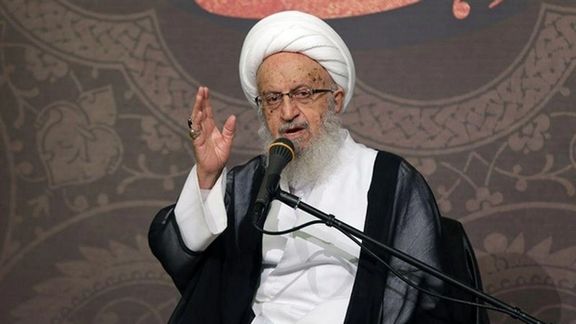
Ayatollah Jafar Sobhani said that "the Raisi administration has been always promising to solve the people’s problems but this promise has never been met." And Ayatollah Abdollah Javadi Amoli referred to inept officials and said, "We should not appoint good but otherwise inept individuals or capable but bad individuals who will embezzle government funds."
One of the first outcomes of the ayatollahs’ remarks against the Raisi administration was the replacement of Iran's Central bank Governor Ali Salehabadi who resigned on Thursday. The new Central Bank governor Mohammad Reza Farzin is no different from Salehabadi in terms of policies. However, the shock in the Iranian market because of rial’s steep fall forced the government to make a change to pretend that it cares. The actual change was a slight boost for the rial.
The Jomhouri Eslami newspaper, a conservative daily critical of the Raisi administration's ultraconservative policies, wrote in an editorial on Thursday that it would be a big mistake by officials to get the message of the ongoing protests wrong. And, not acknowledging the government's errors could be an even bigger mistake."
The daily pointed out that there is no silent majority in Iran. The people are suffering from injustice, economic corruption, high inflation and government's broken promises and they feel humiliated as the government does not seek their political participation. All of this and the government's insistence on its mistakes will inevitably escalate the people's dissatisfaction.
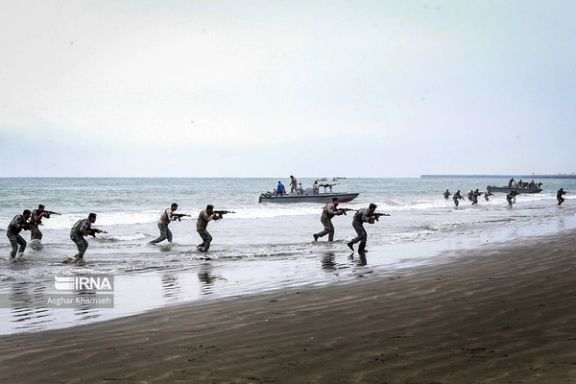
A military commander of Iran's Revolutionary Guard has threatened to attack any regional country which cooperates with Israel and provides bases to its military.
On the sidelines of ceremonies to kick off joint military drills codenamed Zulfaqar 1400 in the Sea of Oman on Friday, an IRGC Commander Major General Gholam-Ali Rashid warned regional countries against any cooperation with Israel in threatening the Islamic Republic’s national security by providing bases or facilities.
“Those bases as well as the points of aggression -- which is the occupying regime of Israel will be the target of attacks by our armed forces.”
Noting that the General Staff of the Armed Forces of the Islamic Republic, the traditional Army and the Revolutionary Guard concur that Israel is the most significant threat to Iran's national security, he said that the Islamic Republic Armed Forces consider military exercises as a “half war” and even a “war before war.”

Zulfaqar 1400 began with the key motto of “self-confidence, power, sustainable security” in an area stretching from the eastern sector of the strategic Strait of Hormuz to the northern tip of the Indian Ocean, with the first hours of the maneuver dedicated to safeguarding the coasts.
“The Navy’s rangers used improved arms and equipment to carry out the operation that lasted until dawn, and the naval forces used Dehlavieh, TOW, and shoulder-fired Misagh missiles against the enemy’s aggression on coastal lines,” Brigadier General Alireza Sheikh, spokesman for the drills, said.
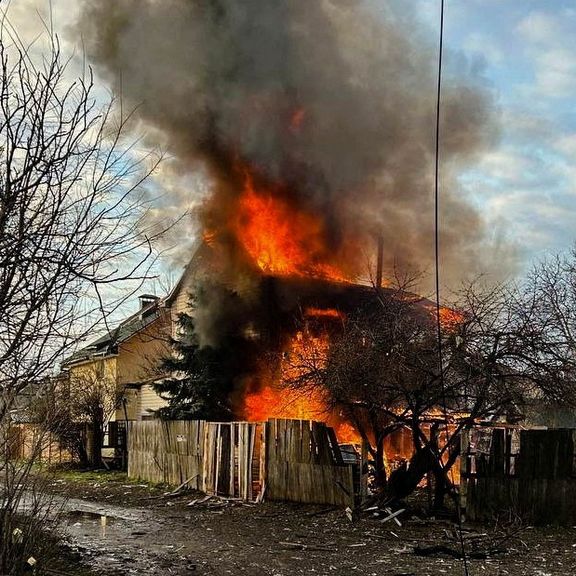
Air raid sirens sounded in Kyiv at 2:00 am Friday as a swarm of Iranian-made drones were headed towards targets in the capital of Ukraine and other locations.
In a second day of Russian attacks on cities and civilian infrastructure, 16 16 Shahed suicide drones were sent over Ukraine, where military official said all were destroyed. Kyiv mayor Vitali Klitschko said 7 were aimed at city and that one administration building was partly destroyed.
On Thursday, Russia fired dozens of cruise missiles and drones at Ukraine, to disrupt electricity and water supplies on the eve of the New Year celebrations.
Ukrainian President Volodymyr Zelenskiy said most regions hit in Thursday's massive air attack suffered power outages.
The areas where loss of power was "especially difficult" included the capital Kyiv, Odesa and Kherson in the south and surrounding regions, and around Lviv near the western border with Poland, Zelenskiy said.
Iran’s delivery of hundreds of Shahed-131 and 136 drones to Russia has enraged the West, which is assisting Ukraine to resist Moscow’s invasion. Western officials have been citing Iran’s weapons deliveries as one reason why they are not inclined to continue nuclear talks with Tehran.
NATO Secretary General Jens Stoltenberg Friday called on member states to supply more weapons to Ukraine.
"I call on allies to do more. It is in all our security interests to make sure Ukraine prevails and (Russian President Vladimir) Putin does not win," Stoltenberg told German news agency DPA.
Stoltenberg said that military support for Ukraine was the fastest way to peace.